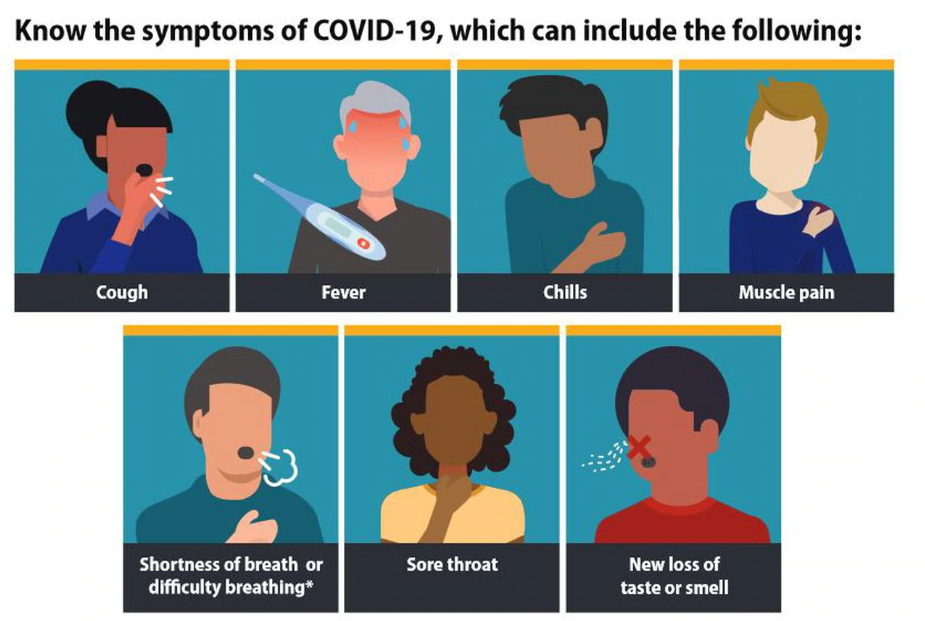The Ultimate Beginners Guide to Prenatal Care: Nurturing a Healthy Pregnancy

Congratulations, expectant moms! Your journey into motherhood has begun, and it’s an exciting and transformative time in your life. As you embark on this beautiful journey, taking care of yourself and your growing baby becomes paramount. Prenatal care is the foundation for a healthy pregnancy, ensuring the well-being of both you and your little one. In this beginner’s guide to prenatal care, we’ll explore the essential steps and tools that will help you nurture your pregnancy with confidence and joy.
Contents
- What is Prenatal Care?
- What is The Importance of Prenatal Care?
- Where Can You Get Prenatal Care?
- How Often Will You Have Prenatal Care Visits?
- Some Important Things You Need to Look After
- Conclusion
What is Prenatal Care?
Prenatal care refers to the medical and lifestyle support that a pregnant individual receives to ensure the health and well-being of both themselves and their developing baby during pregnancy. It involves a series of regular check-ups, medical screenings, and guidance from healthcare professionals to monitor the progress of the pregnancy, detect any potential issues, and provide necessary interventions to promote a safe and successful pregnancy journey.
What is The Importance of Prenatal Care?
Why is prenatal care so important, you ask? Well, imagine this: you’re going on a cross-country road trip. You wouldn’t set off without a map, right? Prenatal care is your map—guiding you through the twists and turns of pregnancy and making sure you reach your destination safe and sound.
During prenatal care visits, your healthcare provider will monitor your baby’s growth, keep tabs on your health, and catch any potential hiccups before they become big issues. This proactive approach can help prevent complications and make your pregnancy journey smoother.
Prenatal care is not just a routine; it’s a crucial aspect of ensuring a smooth and healthy pregnancy. These visits also offer you the opportunity to address any concerns or questions you may have.
Where Can You Get Prenatal Care?
The good news is that there are several places where you can receive prenatal care. The most common options include:
Hospitals and Maternity Clinics:
Hospitals and maternity centers are popular choices for receiving prenatal care. Many of these facilities have dedicated departments or units specializing in obstetrics and gynecology. You’ll find experienced doctors, nurses, and medical staff who are well-equipped to guide you through your pregnancy journey. Look for hospitals or clinics with good reputations and positive patient reviews in your area.
Obstetricians (OB-GYNs):
Obstetricians are medical doctors who specialize in pregnancy, childbirth, and women’s reproductive health. They provide comprehensive prenatal care, monitor your health and the baby’s growth, and offer expert advice throughout your pregnancy. You can find qualified OB-GYNs practicing in both private clinics and hospitals across India.
Maternity Homes:
Maternity homes are dedicated facilities that focus on providing care to pregnant individuals and new mothers. These homes often offer a holistic approach to pregnancy, providing medical care alongside emotional and educational support. Maternity homes are particularly popular in smaller towns and rural areas.
Government Health Centers:
India’s government-run health centers, such as Primary Health Centers (PHCs) and Community Health Centers (CHCs), offer maternal and child health services, including prenatal care. These centers are accessible to a wide range of people and provide basic healthcare services free of cost.
Private Obstetric Clinics:
Private obstetric clinics are often run by experienced obstetricians who offer personalized care throughout your pregnancy journey. These clinics may have a more intimate atmosphere, providing you with a chance to build a close relationship with your healthcare provider.
Women’s Hospitals:
Women’s hospitals, also known as women’s health institutes or specialty hospitals, focus exclusively on women’s health needs. They offer a range of services, including prenatal care, gynecological care, and reproductive health services.
Online Resources and Apps:
In this digital age, you can also explore online resources and apps that provide information, guidance, and even virtual consultations with healthcare professionals. Some platforms offer services for tracking your pregnancy, getting expert advice, and connecting with other expectant parents.
How Often Will You Have Prenatal Care Visits?
Picture your prenatal care visits as stepping stones on your journey. The frequency of these visits will depend on various factors, including how far along you are in your pregnancy and whether you have any underlying health conditions. Here’s a general breakdown:
First Trimester (Weeks 1-12): You’ll likely have a prenatal care visit once a month. These visits are your chance to confirm your pregnancy, get your initial tests done, and start building that essential relationship with your healthcare provider.
Second Trimester (Weeks 13-28): Your visits might become a bit more frequent—about once every 4 weeks. This is a time of growth, both for your belly and your connection with your baby.
Third Trimester (Weeks 29-40+): As you approach the finish line, your visits could become even more frequent, happening every 2 to 3 weeks. These visits are all about making sure you and your baby are ready for the big day.
Remember, these are just general guidelines. Your healthcare provider will tailor the schedule to your specific needs and circumstances.
Some Important Things You Need to Look After
Monitoring Your Baby’s Health at Home
Baby Kick Tracking: Connecting with Your Little One
Feeling those tiny kicks and flutters is a magical part of pregnancy. Monitoring your baby’s movements is not only heartwarming but also an important indicator of their well-being. Use the baby kick tracking app to record your baby’s movements and share this information with your healthcare provider during appointments.
Digital Pregnancy Monitoring Device: Your Partner in Care
Embrace the convenience of technology with digital pregnancy monitoring device. This powerful tool allows you to track your prenatal appointments, receive personalized reminders, and access educational resources about each stage of pregnancy. Stay organized and informed with the help of this user-friendly digital assistant.
Nourishing Your Body and Mind
Eating Well for Two
Nourishing your body with a balanced diet is essential during pregnancy. Focus on consuming a variety of fruits, vegetables, lean proteins, whole grains, and dairy products. Staying hydrated is equally important, so remember to drink plenty of water throughout the day.
Staying Active Safely
Engaging in regular, low-impact exercises like walking, swimming, or prenatal yoga can boost your energy levels, improve your mood, and help with maintaining a healthy weight. Always consult your healthcare provider before starting any exercise routine.
Prioritizing Rest
Listen to your body and get adequate rest. Pregnancy can be tiring, especially as your body undergoes changes to accommodate your growing baby. Aim for 7-9 hours of quality sleep each night and consider taking short naps during the day if needed.
Emotional Well-being
Connecting with Your Emotions
Pregnancy comes with a whirlwind of emotions. It’s okay to feel excited, anxious, and everything in between. Share your feelings with your partner, friends, or a support group. If you find yourself struggling, don’t hesitate to reach out to a mental health professional who specializes in maternal well-being.
Relaxation Techniques
Practice relaxation techniques such as deep breathing, meditation, or gentle prenatal massages. These techniques can alleviate stress, promote relaxation, and create a peaceful environment for you and your baby.
Preparing for Labor and Beyond
Educating Yourself about Labor
Knowledge is power. Take childbirth education classes to familiarize yourself with the labor process, pain management options, and postpartum care. Knowing what to expect can ease your anxieties and empower you as you approach childbirth.
Creating a Birth Plan
A birth plan outlines your preferences for labor and delivery. While flexibility is key, having a plan can help you communicate your desires with your healthcare team and ensure your wishes are taken into account.
Reaching Out for Support
Your Support Network
Surround yourself with a strong support system. Whether it’s your partner, family, friends, or a local parenting group, having people who understand and care for you can make your pregnancy journey even more fulfilling.
Asking Questions and Seeking Help
Don’t hesitate to ask questions, no matter how small they may seem. Your healthcare provider is there to address your concerns and provide guidance. Remember, there’s no such thing as a “silly” question when it comes to your well-being and your baby’s health.
Emergency & Facility
India has implemented the Pradhan Mantri Surakshit Matritva Abhiyan (PMSMA) to further support and ensure the well-being of pregnant women across the country. PMSMA, launched by the Government of India, aims to provide comprehensive antenatal check-ups to pregnant women on the 9th of every month. These check-ups are conducted by a network of empowered healthcare professionals, including obstetricians and gynecologists, to ensure that women receive the necessary medical attention, advice, and guidance throughout their pregnancies. This initiative emphasizes the importance of regular check-ups, early detection of complications, and ensuring the health of both the mother and the unborn child. PMSMA plays a crucial role in promoting maternal health and reducing maternal and infant mortality rates in India.
To find out about the program in your state:
- Call 8100-180-1104. This toll-free telephone number to join the program.
- Registration
- Contact your local Health Department.
Conclusion
Embrace each moment of your pregnancy journey with open arms and a positive mindset. Prenatal care is your compass, guiding you through the beautiful experience of nurturing life within you. From tracking your baby’s kicks with the Baby Kick Tracking and Pregnancy Monitoring App to staying connected with a supportive network, every step you take contributes to the health and well-being of both you and your precious baby. Remember, you’re not alone on this journey; you have the resources, tools, and love to create a nurturing and joyful pregnancy experience.









